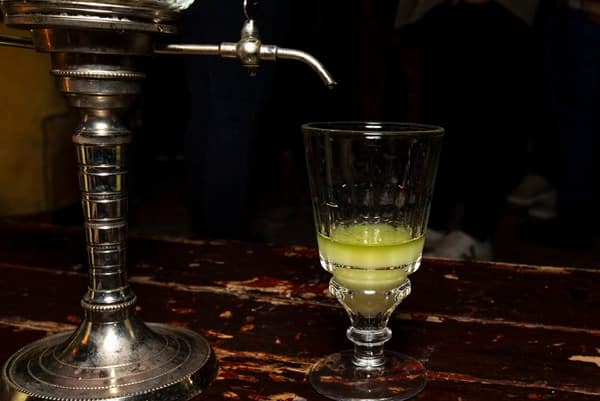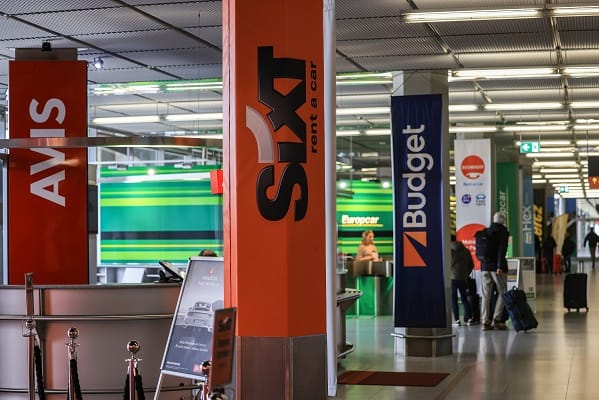In an industry steeped in centuries-old tradition, the absinthe industry is experiencing a revolution like never before. Technology has emerged as a game-changer, transforming the way absinthe is distilled, bottled, and labeled. From the meticulous process of distilling the perfect blend of herbs and botanicals to the intricacies of bottling and labelling, every aspect of the absinthe production chain has been impacted by technological advancements. In this article, we will delve into the fascinating world of absinthe and explore the ways in which technology has revolutionised the industry. Join us as we uncover the innovative techniques and cutting-edge machinery that are shaping the future of absinthe production. Discover how these advancements are not only enhancing the efficiency and quality of the production process but also redefining the way consumers perceive and enjoy this iconic spirit. Get ready to be amazed by the intersection of tradition and technology in the absinthe industry.
Traditional methods of distilling, bottling, and labelling absinthe
Absinthe has a rich history that dates back centuries, and the traditional methods of distilling, bottling, and labelling have been passed down through generations. The process begins with carefully selecting and harvesting a variety of herbs and botanicals, including wormwood, anise, and fennel. These ingredients are then macerated and distilled to extract the essential oils and flavors that give absinthe drink its distinctive character.
Once the distillation process is complete, the absinthe is typically aged in oak barrels to further develop its flavor profile. After aging, the absinthe is carefully filtered and then bottled by hand. The bottles are traditionally adorned with intricate labels that showcase the brand’s heritage and craftsmanship.
While these traditional methods have their charm and are deeply rooted in the history of absinthe production, they also have their limitations. The process can be time-consuming and labor-intensive, leading to inconsistencies in quality and taste. This is where technology comes in to revolutionise the industry.
The impact of technology on the absinthe industry
Technology has had a profound impact on the absinthe industry, revolutionising the way the spirit is produced, packaged, and presented to consumers. Advancements in distilling technology have allowed for greater precision and control over the distillation process, resulting in a more consistent and refined product.
Innovations in bottling and packaging techniques have also transformed the way absinthe is presented to consumers. Automated bottling lines now ensure that each bottle is filled with precision, reducing the risk of spillage and contamination. The use of modern materials and designs in packaging has not only improved the functionality of bottles but also elevated the overall aesthetic appeal.
Furthermore, technology has played a pivotal role in the evolution of labelling and branding in the absinthe industry. Digital printing techniques have made it possible to create intricate and eye-catching labels that capture the essence of the brand. This has opened up new possibilities for creative expression and storytelling, allowing absinthe producers to connect with consumers on a deeper level.
Advancements in distilling technology
One of the most significant impacts of technology on the absinthe industry is evident in the advancements made in distilling technology. Traditional copper stills, while iconic and steeped in tradition, have limitations in terms of efficiency and control. Modern distillation equipment, such as stainless steel stills and column stills, offer greater precision and allow for more efficient extraction of flavors and aromas.
These advancements in distilling technology have not only improved the quality and consistency of absinthe but have also made the process more sustainable. The use of advanced heat exchangers and energy-efficient systems has reduced energy consumption and minimised waste, making absinthe production more environmentally friendly.
Innovations in bottling and packaging techniques
Technology has also revolutionised the bottling and packaging of absinthe. Automated bottling lines have replaced manual labor, ensuring that each bottle is filled accurately and efficiently. This not only saves time but also reduces the risk of human error and contamination.
In addition to improved efficiency, technology has also brought about advancements in packaging materials and designs. Lightweight glass bottles are now used to reduce transportation costs and minimise environmental impact. Innovative bottle shapes and closures enhance the overall consumer experience and make absinthe stand out on the shelf.
Evolution of labelling and branding in the absinthe industry
Labelling and branding play a crucial role in the absinthe industry, as they convey the story, heritage, and quality of the spirit. Technology has transformed the way absinthe brands design and produce labels, allowing for greater creativity and customisation.
Digital printing techniques have made it possible to create labels with intricate details and vibrant colors, capturing the attention of consumers and creating a visually striking presence on the shelf. Additionally, advancements in label materials and finishes have enhanced the tactile experience, adding a sense of luxury and craftsmanship to the overall packaging.
Furthermore, technology has enabled absinthe brands to engage with consumers on a deeper level through augmented reality (AR) and interactive packaging. By scanning a QR code on the bottle, consumers can access additional information and immersive experiences, such as virtual distillery tours or cocktail recipes. This not only enhances the consumer’s understanding and appreciation of the brand but also creates a memorable and interactive experience.
Benefits of technology in the absinthe industry
The integration of technology in the absinthe industry has brought numerous benefits to both producers and consumers. For producers, technology has improved efficiency, consistency, and quality control, resulting in a more streamlined and profitable production process. Automation and advanced machinery have reduced labor costs and minimised the risk of human error, ensuring that every bottle of absinthe meets the highest standards.
For consumers, technology has expanded access to a wider range of absinthe products and experiences. The use of digital platforms and e-commerce has made it easier than ever to discover and purchase absinthe alcohol from around the world. Additionally, technology has facilitated greater transparency and traceability in the industry, allowing consumers to make more informed choices about the absinthe they consume.
Challenges and limitations of technological advancements in absinthe production
While technology has undoubtedly revolutionised the absinthe industry, it is not without its challenges and limitations. The initial investment in advanced distilling, bottling, and labelling equipment can be significant, making it difficult for small producers to adopt these technologies. Additionally, the use of technology may require specialised knowledge and expertise, which may not be readily available to all producers.
Furthermore, there is a fine balance between embracing technology and preserving the traditional craftsmanship and heritage that makes absinthe unique. While technological advancements can enhance efficiency and consistency, there is a risk of losing the artistry and human touch that have been integral to the absinthe production process for centuries.
Sustainability and technology in the absinthe industry
As sustainability becomes an increasingly important consideration in the spirits industry, technology has played a vital role in making absinthe production more sustainable. Advanced distillation equipment and energy-efficient systems have reduced energy consumption and waste, minimising the environmental impact.
Additionally, innovations in packaging materials and designs have focused on reducing the use of plastics and incorporating more sustainable alternatives. Lightweight glass bottles, recyclable closures, and eco-friendly label materials are just some of the ways in which technology is helping to reduce the carbon footprint of absinthe production.
The future of technology in the absinthe industry
Looking ahead, the future of technology in the absinthe industry is promising. Advancements in artificial intelligence and automation are likely to further streamline the production process, increasing efficiency and reducing costs. Robotics and machine learning may play a role in enhancing quality control and ensuring consistency in flavor and aroma profiles.
Furthermore, technology will continue to shape the way absinthe is presented and experienced by consumers. Augmented reality and interactive packaging are expected to become more prevalent, providing consumers with immersive and engaging experiences that go beyond traditional label designs.
As the absinthe industry continues to evolve, technology will undoubtedly play a pivotal role in its growth and innovation.
Conclusion
The absinthe industry is undergoing a revolution fueled by technology. From advancements in distilling technology to innovations in bottling, packaging, and labelling, every aspect of absinthe production has been impacted. The integration of technology has brought numerous benefits, including improved efficiency, consistency, and sustainability.
While there are challenges and limitations to consider, the intersection of tradition and technology in the absinthe industry presents exciting possibilities for the future. As technology continues to evolve, this industry will undoubtedly embrace new advancements that enhance the production process and elevate the consumer experience.
As consumers, we can look forward to a future where absinthe continues to captivate our senses, thanks to the seamless integration of tradition and technology.







